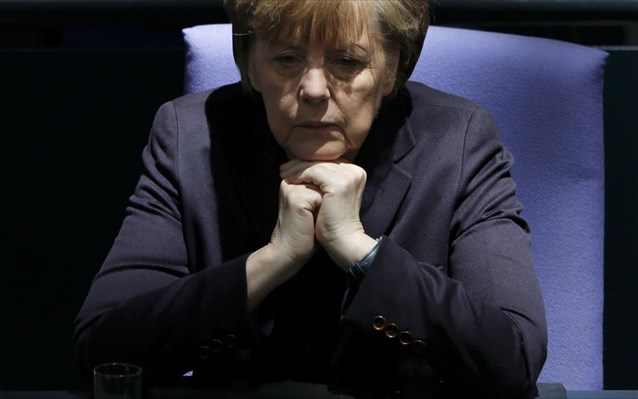photos: www.naftemporiki.gr
It makes sense to assume that the coalition between SYRIZA and Independent Greeks will not lead to a break with the creditors, which could push Greece into uncharted territory and incur unpredictable consequences.
This has been confirmed by reports on the government's intentions. However, the partners will have to make certain concessions and thus allow the government to save its face before the country for backing down on its initial claims about cutting the nominal value of Greek debt.
What could these discounts be? Ideally, this could be the coupling of interest payments with GDP growth rates, based on a parallel debt adjustment by further rescheduling of loan maturities.
To what extent is that possible? The answer to this question relates directly to the dead-end reached during the last assessment of the bailout programme, which accelerated political developments and led to the SYRIZA government coming to power.
Brussels and Berlin failed to sign an agreement with the government of New Democracy and PASOK. The reason for this may be their decision to address the SYRIZA phenomenon at an earlier stage. The rise of such a Eurosceptic populist force could strengthen the hand of similar movements in the larger countries (e.g. Podemos in Spain). They might have also taken into account the fact that the political system, which led to the Greek crisis, hadn't lived up to the urgent tasks, and therefore it was time to try warmer relations with a still uncorrupted party like SYRIZA. This is also an opportunity to break with the established ‘elite’ in Greece, as the German finance minister Wolfgang Schaeuble likes to call it.
With the first scenario, creditors are not likely to concede any ground. With the second, they might be somewhat more prone to compromise.
But in both cases the Greek adaptation to key Eurozone modes of operation, as defined by the wealthy countries of western and northern Europe, is not negotiable.
European decision-making centres believe that if a market were to get a grip of its problems – whether they were created by guilds or oligarchs – it must be freed and healthy competition invited.
If one thing is certain, it is that, five years after the onset of the crisis, the Greek case is a focus of international interest to no lesser degree. As reported from Brussels, "everybody now is looking to Greece".

Meanwhile, German Chancellor Angela Merkel has rejected any chance for further reduction of Greek debt, as demanded by the new Prime Minister Alexis Tsipras.
"There has already been a voluntary waiver by private lenders; the banks gave up on billions of euro slated to come from Greece", Merkel said in an interview for Hamburger Abendblatt. "I can't see a new debt relief coming. Europe will keep showing solidarity towards Greece as well as towards other countries, which have been strongly hit by the crisis, contingent on the adoption of reforms and austerity measures by these countries."
Answering the question as to whether Greece’s failure to continue with the reforms spells the end of structural reform across Europe, the Chancellor said: "No. The EU will continue its reform policy. The ECB, which is independent, might apply its own measures, like the ones linked with the government bond market. It is however clear that ECB funds could not be a substitute for a consistent reform policy in Eurozone countries. On the contrary. Every country should work towards its own competitiveness and a stable financial situation without new debt. Germany, with its well balanced budget, is on the right road."
Asked about the first noises the new Greek government has made, e.g. about raising the minimum wage and the reappointment of civil servants, Merkel emphasised: "We, that is, Germany and the other European partners, are expecting to see what ideas the new government will put forward to us."
"The aim of our policies was – and still is – that Greece stayed as a Eurozone member-state. Both Greece itself and the European partners have contributed to that. I'm expecting to see the plans the Greek government will come up with," said the chancellor.
"I congratulated prime minister Alexis Tsipras, as I do with all European colleagues, and I wish him strength and success. I expect that the friendship between our two nations will further improve," stressed Angela Merkel while responding to a question about the leading politicians from the new Greek government, who had been up in arms against Germany during the election campaign, and even talked about a fourth reich.
"Are the insults forgiven?", inquired the journalist, and Merkel once again emphasised that her wish was that Greece succeed, and then added: "Many people have been through difficult times, I know that. And most Greeks have no blame for the scores of mistakes, which have been made for decades."
As regards SYRIZA’s demands for war reparations, the chancellor once again reiterated the already established answer: "This issue cannot be put to discussion at the moment. I am working towards a better future for our nations and for Europe."
Alexis Tsipras is expected to visit Italy and France on Tuesday and Wednesday for meetings with the political leadership of both countries. However, no visit to Berlin has yet been planned.

The Greek question was also discussed at the unofficial dinner of French president Francois Hollande, German chancellor Angela Merkel and European Parliament president Martin Schulz in Strasbourg. "This is an informal dinner, there is no agenda and there will be no comments or statements," said sources from the French presidency.